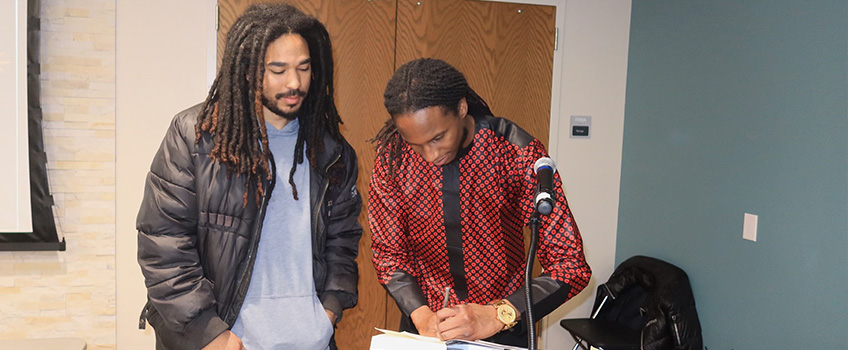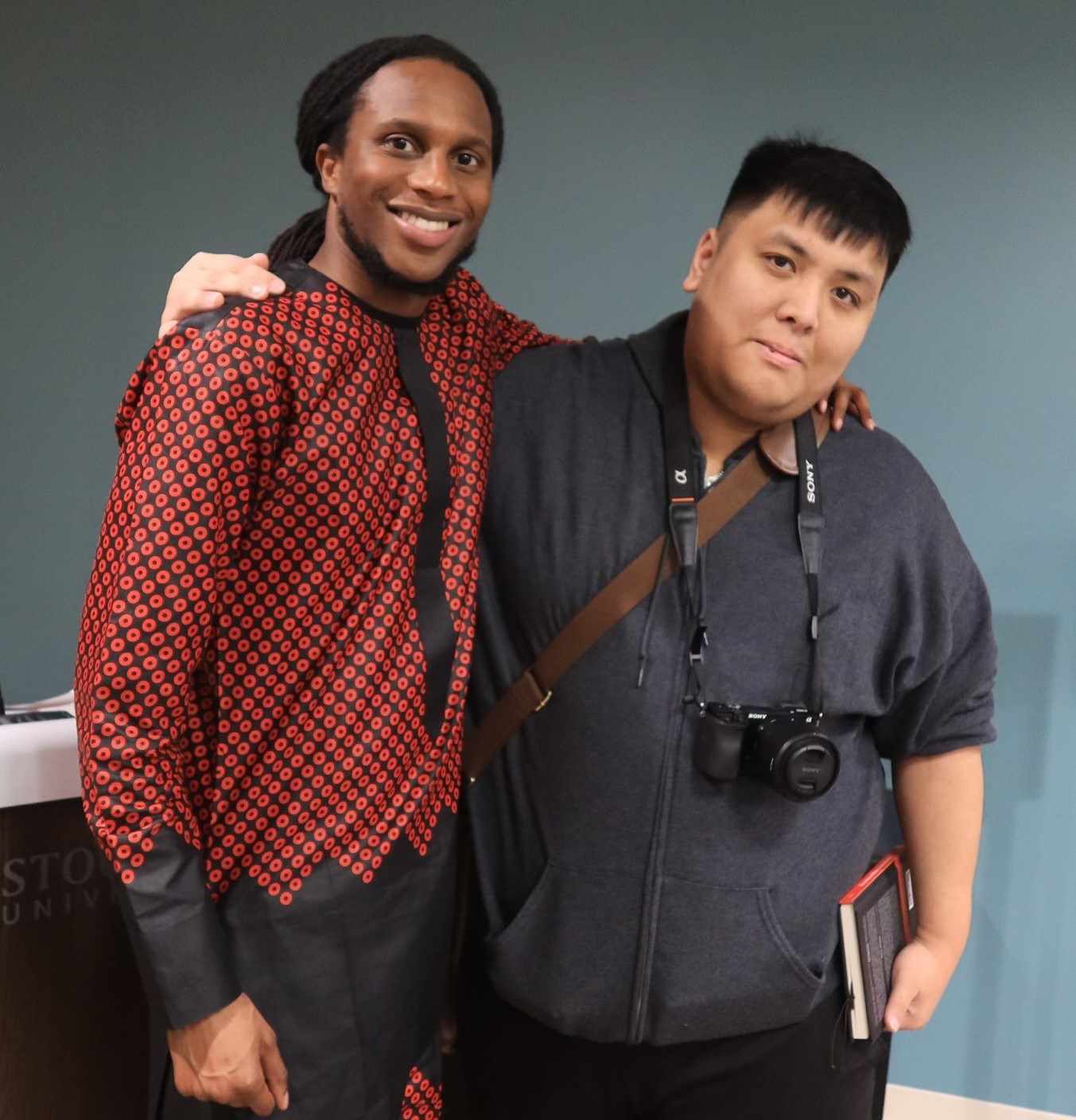Spotlight On: Kimoni Yaw Ajani

Kimoni Yaw Ajani, assistant professor of Africana Studies, signs a copy of his book, “The Afrikan Revolution in Ayiti: Libète ou Lanmò, Freedom or Death?” for student Lamonte A. Jones during his book signing Feb. 15.

Ajani with current student Richard Pham during his book signing Feb. 15.
Galloway, N.J. – Kimoni Yaw Ajani, assistant professor of Africana Studies at Stockton, hosted a book signing for his recent publication, “The Afrikan Revolution in Ayiti: Libète ou Lanmò, Freedom or Death?” on Feb. 15 in the Multicultural Center.
Ajani, who had been working on the book for three years, noted it was originally based on the research he conducted for his dissertation, which he defended in 2021 — a culmination of six years starting in 2017.
The publication is an Afrocentric re-examination and interpretation around the historiography of the revolution in Ayiti, which is the indigenous name for the island of Haiti. According to Ajani, the book provides an in-depth study highlighting several significant Afrikan epistemological and cosmological aspects that led to freedom. These aspects include, but are not limited to, the persistence of Afrikan complementary forces in Ayiti, Vodou/Vodun and Afrikan cosmology, Afrikan combat traditions, such as Tire Machèt, and the numerous Afrikan languages, personalities and roles that emerged from the growing numbers of Afrikans brought to Ayiti as a result of the European slave trade. Ajani calls for building communities on the best of Afrikan epistemological foundations and reclaiming Afrikan history.
“After my visit back home to Ayiti in May of 2017 with my advisor, Dr. Ama Mazama, and the death of my guardian/father in August 2017, I had an intense fire to complete and produce this study. This fire would intensify after traveling to Benin to present some of my research during May and June,” Ajani said when asked what inspired him to write this book. “During my first year at Stockton in 2021, I published an article in the Journal of Black Studies titled ‘The Converging Streams of Afrikan War and Resistance in the Afrikan World’ and was approached by Lexington Books who presented me an opportunity to publish my research as a book.”
When asked what he hoped readers would take away from reading this, Ajani replied, “Much like the great intellectual and author Dr. Mzee Jedi Shemsu Jehewty aka Jacob Carruthers and the renowned Ayisyen (Haitian) anthropologist Dr. Michel-Rolph Trouillot, I wanted to offer students a different and unique interpretation of our history or rather ‘Ourstory’ in Ayiti as well as the Black-Afrikan world/diaspora.”
Traveling to the source will give you a wealth of knowledge that you cannot always gain in the classroom or our texts. Therefore, it is critical that our students engage with the oral traditions as well as the primary, secondary and tertiary sources of what they study.
“Although the main focus is on the story of the Ayiti revolution, I also discuss related Afrikan/Black revolutions, wars of resistance, and movements that occurred in the past, as well as in the present. Many of the issues and problems our ancestors faced are still occurring today,” Anaji said.
Anaji said his visits to Ayiti, Benin and Senegal greatly impacted his research approach and interpretations.
“I got the opportunity to visit several key ancestral sites and to speak with Griots (or public historians and storytellers) and scholars who had a long memory of ‘Ourstory.’ Traveling to the source will give you a wealth of knowledge that you cannot always gain in the classroom or our texts. Therefore, it is critical that our students engage with the oral traditions as well as the primary, secondary and tertiary sources of what they study,” Anaji said.
Reported by Mandee McCullough
Photos by Lizzie Nealis


